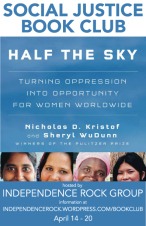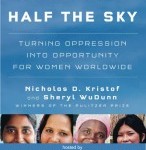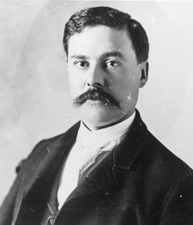This post is part of the April Social Justice Book Club. This week we are discussing Half the Sky: Turning Oppression into Opportunity for Women Worldwide by Nicholas D. Kristof and Sheryl WuDunn.
Conversation Questions for Chapter Twelve:
“…cultural barriers can be overcome relatively swiftly where there is political will to do so.”
Where does this political will come from? How can be cultivated?
“Implicit in what we’re saying about China is something that sounds shocking to many Americans: Sweatshops have given women a boost.”
This statement is shocking. Discuss why the authors confidently make this statement. Can the same be said about children in sweatshops? What is the definition of a sweatshop?
The fair trade movement seeks to ensure safe work environments, free of child and slave labor for farmers and artisans in developing countries while providing a wider market for their goods. In light of the above statement regarding sweatshops, is purchasing fair trade items effective in alleviating the suffering of those involved? Or, is it detrimental for U.S. shoppers to demand safe work environments in developing countries? How does this compare to Westerners speaking against other human rights violations (i.e. foot-binding)?
What advances in the rights of women have you witnessed in your lifetime? In North America? Abroad? Are men and women in our culture equal in every way? Are there still areas where the genders are treated differently in the West?
Source: The above questions come from the organization Global Women.
Please share with us your responses to the questions above or any thoughts or questions you have about the complexities of gender equality in the comments section below.
The Social Justice Book Club is a project of Independence Rock Group: Center for Faith, Ethics, and Social Justice. Please consider supporting the Social Justice Book Club and our other projects. Find other posts about the Book Club and Half the Sky here.













